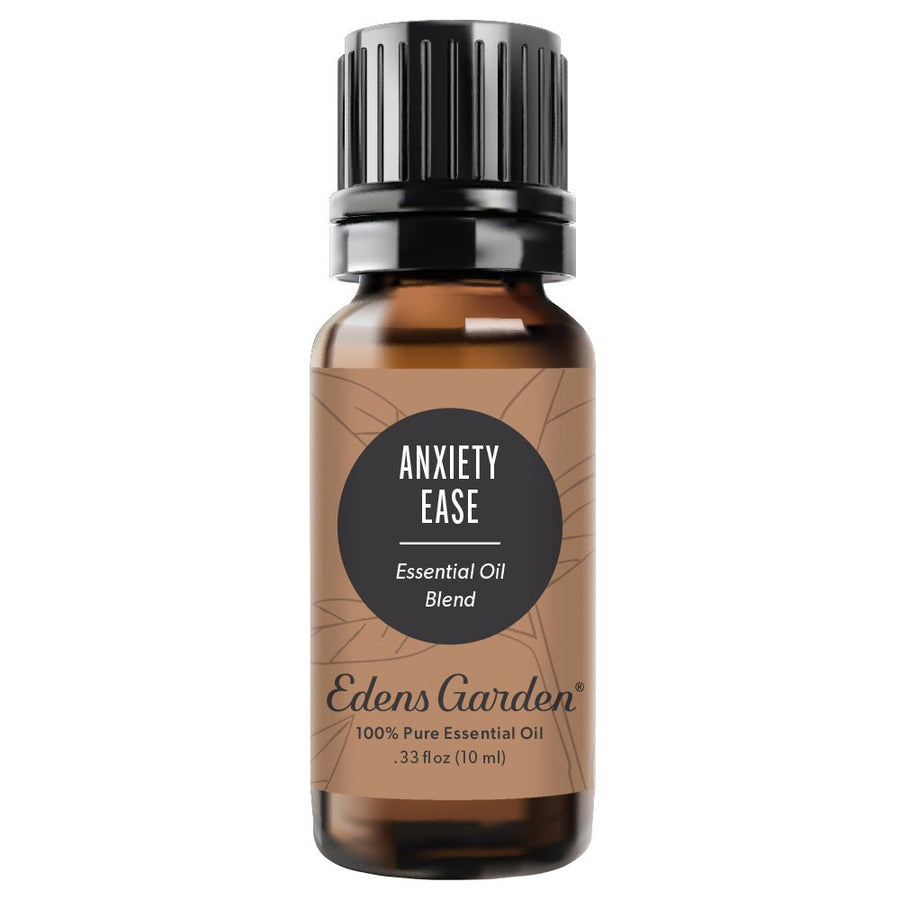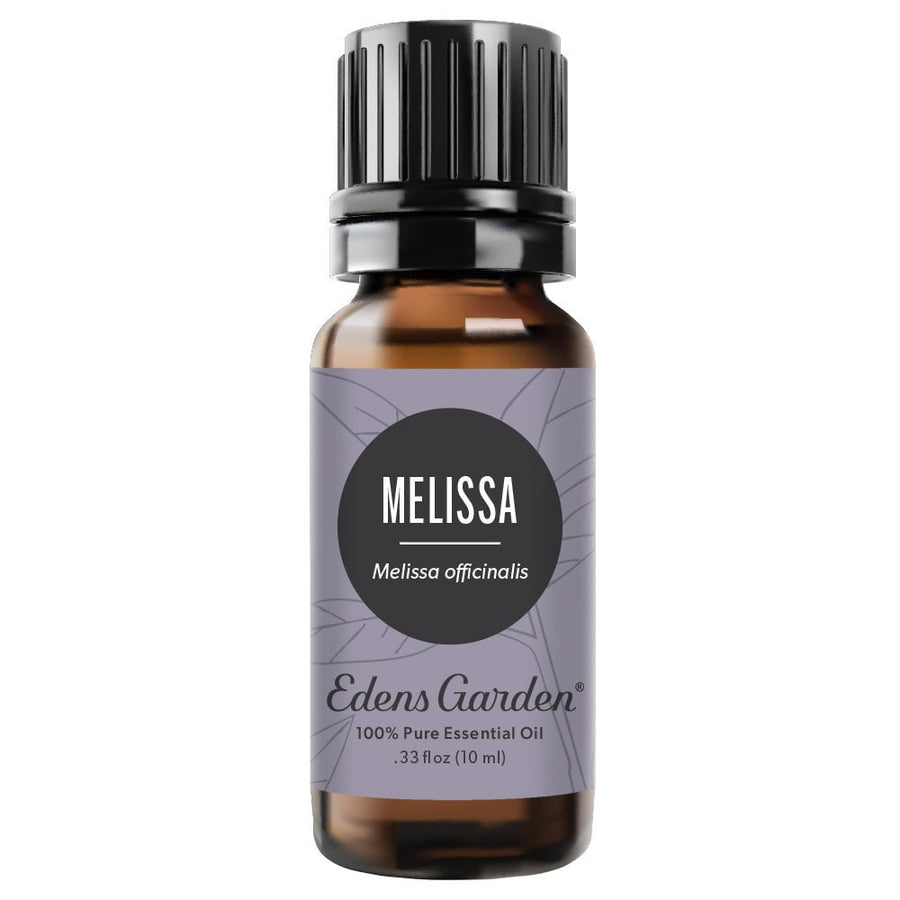6 Tips On How To Ease Anxiety

This content was updated for accuracy and relevance on November 23rd, 2020
Do you struggle with daily anxiety?
If so, you’ve likely seen the consequences seep into every aspect of your life, making it difficult to go about your daily routine. When you’re stressed, it’s hard to sleep and even harder to get out of bed. It impacts your work performance and relationships.
Although there are no overnight fixes to the roots of anxiety, there are healthy habits you can incorporate into your life to help calm anxiety and reduce stress.
Want to know how to ease anxiety? Here’s our guide on tips to calm your nerves.
Incorporate Calming Essential Oils Into Your Daily Routine
One of the simplest, complementary ways to find stress relief in your life is by using essential oils for anxiety to calm nerves. A 2017 study from South Korea discovered that aromatherapy helped decrease the perceived stress and objective stress of ICU patients. It also helped improve their sleep quality.
But what essential oils help with anxiety? We’ve outlined our favorite essential oils for anxiety relief:
Anxiety Ease Synergy Blend
Precisely formulated to reduce the tension and stress caused by anxiety, the Anxiety Ease essential oil blend smells great and works fast. It contains a mixture of three powerful aromatherapy oils:
-
Sweet Orange
-
Ylang Ylang
-
Lemongrass
Together, they represent a one-stop-shop for fighting shaky nerves and anxious feelings.
Chamomile Lavender Synergy Blend
This amazing aromatherapy diffuser blend contains Lavender essential oil which helped reduce preoperative anxiety in ambulatory surgery patients in a study from the Department of Healthcare Policy and Research in New York City. When you inhale Chamomile Lavender Synergy blend, signals are sent to the olfactory system and the brain to release neurotransmitters (serotonin and dopamine), which can help regulate mood.
Relaxation Synergy Blend
The tranquil aroma of Relaxation Synergy Blend can have an almost immediate calming effect. This blend contains Chamomile essential oil which is mildly sedative, and has been shown to help reduce inflammation and prompt deeper sleep in some studies.
Melissa Essential Oil
A lesser-known essential oil that has grown in popularity in recent years, Melissa essential oil has sedative qualities that can help calm an anxious mind. In a pilot study, Melissa has shown to be an anti-stress and anxiolytic agent.
Be Still Synergy Blend
If you haven’t tried Be Still Synergy blend yet, prepare to fall in love. Its floral aroma helps relax both the body and mind. Be Still contains Ylang Ylang and a 2014 study verified that Ylang Ylang essential oil helped improve the self-esteem of 34 professionals from a Brazilian nursing group.
1. Daily Exercise
One of the healthiest and simplest ways you can combat stress and release pent up adrenaline is by incorporating exercise into your daily routine. Whether it’s walking, jogging, biking, swimming, lifting weights, dancing, or yoga, physical activity is good for the soul.
When you exercise, your body naturally pumps hormones and endorphins into your system. This helps you:
-
Clear your mind
-
Improve your mood
-
Focus
-
Sleep more soundly
A 2006 study found that “Regular exercise is cross-sectionally associated with lower neuroticism, anxiety and depression and higher extraversion and sensation seeking in the population.” Further, when you make physical activity a part of your life, you’ll lose fat, gain muscle mass, and be healthier.
There are essential oils you can use to recover faster and have more energy. They include Orange, Peppermint and Lemon oil.
2. Get Better Sleep
If you’re a night owl, it’s time to start changing your habits.
Sleep deprivation is a significant contributor to anxiety. Lack of restful sleep can cause your body and mind to react poorly to stimuli and emotions.
Sleep is your body’s recovery mode—it restores, revitalizes, and prepares you for the next day. When you don’t get enough sleep, your body doesn’t have the chance to recuperate as it needs to. And when you sleep matters too!
According to Time Magazine, “When it comes to bedtime, there’s a window of several hours—roughly between 8 PM and 12 AM—during which your brain and body have the opportunity to get all the non-REM and REM shuteye they need to function optimally.”
If you want to have a healthy emotional function, you must get the proper rest. Essential oils can help with that as well. For instance, consider adding any of the following to your bedtime prep:
-
Lavender
-
Vanilla oleoresin
-
Rose - Otto
-
Geranium
3. Cut Out Caffeine
Do you rely on coffee to shake the mental cobwebs in the morning? Have a Coke with your lunch? If so, it may be time to cut them out of your life, particularly if you already struggle with anxiety.
Caffeine is a stimulant that has links with elevated heart rates and adrenaline release, both of which contribute to anxiety. A 2010 study discovered that, “High doses of caffeine can induce psychotic and manic symptoms, and more commonly, anxiety. Patients with panic disorder and performance social anxiety disorder seem to be particularly sensitive to the anxiogenic effects of caffeine.”
Similarly, regular caffeine ingestion can cause symptoms that overlap with an anxiety attack, sleep disorders or panic attacks.
Want the mental clarity and energy boost without all the jitters? Then give Rosemary, Spearmint, or Patchouli a try.
4. Clean Your Room and Stop Procrastinating
Clutter, mess, and a long to-do list can cause your anxiety to ramp up.
When you’re scrambling to catch up — whether in your personal or professional life — your stress levels will naturally increase. As your to-do list builds, the sheer number of things that need finishing can overwhelm your mind and cause paralysis to set in.
To start your day out right, try making your bed as soon as you’re out of it. Just finishing this single task can have a huge impact on the rest of your day, since it starts you off on a productive note. It will have you feeling good and set you on the path to a less stressful day.
Even if you don’t feel like it initially, you’ll be happy that you finally got around to checking off those tasks that you’d been procrastinating on for far too long.
5. Talk To a Professional
If your anxious feelings are persistent, it may be necessary to speak to a mental health professional. Talking through your issues with a sympathetic ear can make a world of difference.
Over the years, several types of physiotherapy have been effective in treating and managing anxiety. They include:
-
Cognitive Behavioral Therapy (CBT)
-
Dialectical Behavioral Therapy (DBT)
-
Interpersonal Therapy
-
Eye Movement Desensitization and Reprocessing (EMDR)
-
Exposure Therapy
Medical professionals have helped millions overcome their mental health issues. They could likely help you improve your mental wellbeing as well.
6. How Can I Reduce Anxiety Naturally?
These six healthy habits and routines can be incorporated into your life and help you reduce or relieve anxiety symptoms. Try the natural remedy of adding pure essential oils into your daily routine as a first step and see how you feel!
For more recommendations, consider these aromas: , Sandalwood oil, , , , , Tea Tree or .
If you want to try topical application then you must dilute your essential oil with a carrier oil (such as Sweet Almond oil or Fractionated Coconut oil) or use a pre-diluted Roll-On essential oil.
Sources:
- NCBI. The Effects of Aromatherapy on Intensive Care Unit Patients' Stress and Sleep Quality: A Nonrandomised Controlled Trial. https://www.ncbi.nlm.nih.gov/pmc/articles/PMC5742427/
- NCBI. The Efficacy of Lavender Aromatherapy in Reducing Preoperative Anxiety in Ambulatory Surgery Patients Undergoing Procedures in General Otolaryngology. https://www.ncbi.nlm.nih.gov/pmc/articles/PMC5743169
- Penn State Medical Center. German Chamomile. http://pennstatehershey.adam.com/content.aspx?productId=107&pid=33&gid=000232
- PubMed. Pilot trial of Melissa officinalis L. leaf extract in the treatment of volunteers suffering from mild-to-moderate anxiety disorders and sleep disturbances. https://pubmed.ncbi.nlm.nih.gov/22207903/
- SciElo. Aromatherapy with Ylan Ylang for Anxiety and Self-Esteem: A Pilot Study. https://www.scielo.br/scielo.php?script=sci_arttext&pid=S0080-62342014000300492&lng=en&tlng=en
- ScienceDirect. Regular exercise, anxiety, depression and personality: A population-based study. https://www.sciencedirect.com/science/article/pii/S0091743505002331#aep-abstract-id10
- Time. Best Time To Sleep. https://time.com/3183183/best-time-to-sleep/
- PubMed. Caffeine, mental health, and psychiatric disorders. https://pubmed.ncbi.nlm.nih.gov/20164571/








Leave a comment (Comments will be approved before showing up)